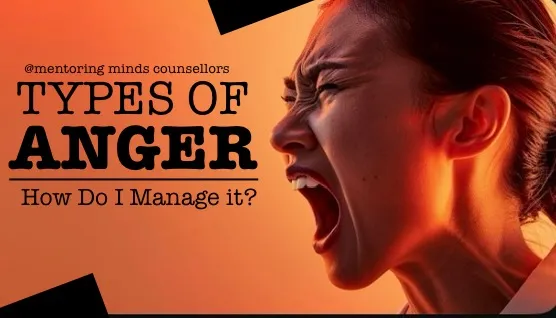Anger is a universal emotion we’ve all felt it. It shows up in traffic jams, during disagreements, when we’re hurt, or even when we feel helpless. And while anger itself isn’t “bad,” how we express and manage it can make all the difference in our mental and emotional well-being.
What many people don’t realize is that there are different types of anger, and each comes with its own patterns and triggers. The good news? Once we understand what kind of anger we’re dealing with, it becomes easier to manage and overcome it.
1. Passive Anger
What it looks like:
This is the silent treatment, sarcasm, or bottling up emotions. Instead of confronting issues directly, someone with passive anger may act detached, cold, or behave in subtle, undermining ways.
2. Expressed Anger
What it looks like:
This is the classic form of anger yelling, name-calling, or even physical aggression. It’s a direct, outward expression of frustration or rage.
3. Chronic Anger
What it looks like:
This is long-term resentment or bitterness. It’s often connected to unresolved issues, trauma, or deep-seated frustration with life.
4. Judgmental Anger
What it looks like:
This type of anger comes from a sense of moral superiority feeling angry because someone else broke the rules or went against your values.
5. Self-inflicted Anger
What it looks like:
This is anger turned inward guilt, shame, or harsh self-criticism. People with self-inflicted anger often struggle with low self-esteem and perfectionism.
How can I overcome it?
- Use “I” statements instead of blaming language: “I feel upset when…” instead of “You always…”
- Challenge your assumptions: Are you reacting to facts or personal beliefs?
- Ask yourself: “Is this worth being angry over?” or “Is this helping anyone?”
Final Thoughts
We at Mentoring Minds Counsellors Anger isn’t the enemy. It’s a signal a messenger telling you something isn’t right. But left unchecked, it can damage relationships, health, and happiness. The goal isn’t to never feel angry; it’s to understand it, manage it, and use it to grow.


Leave a Comment